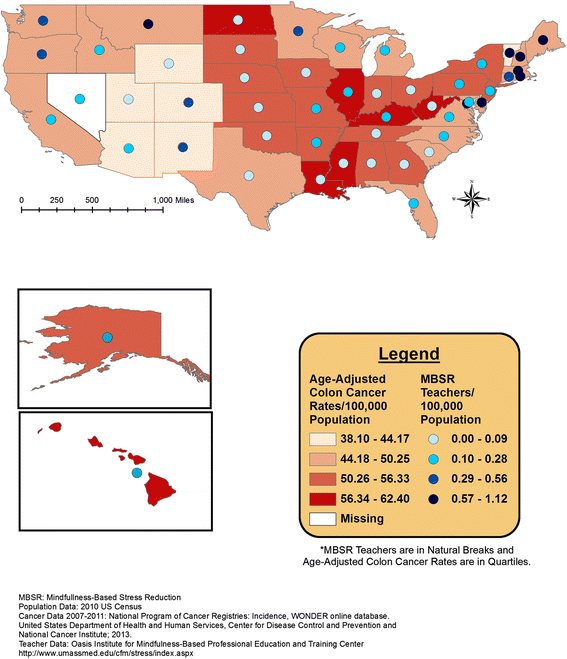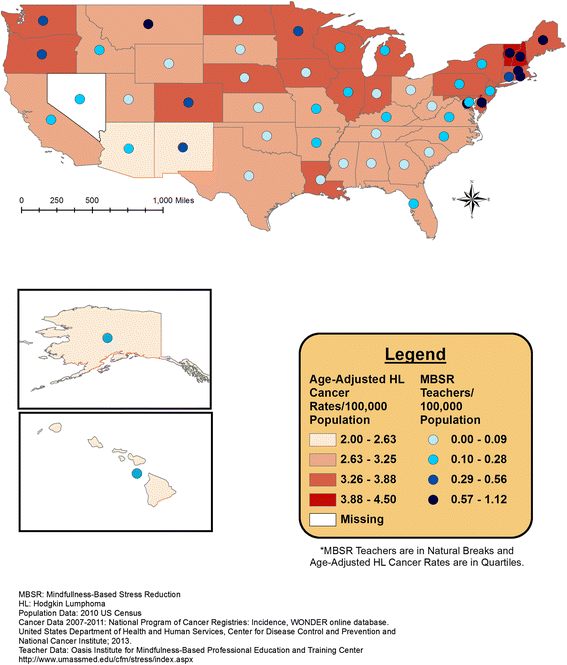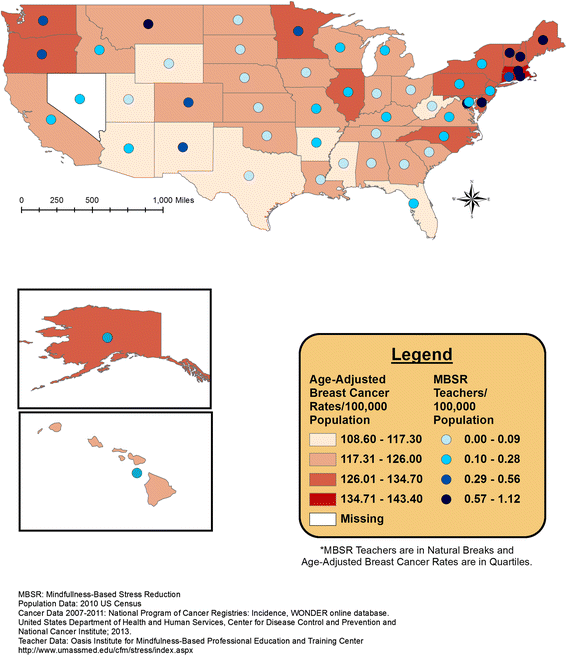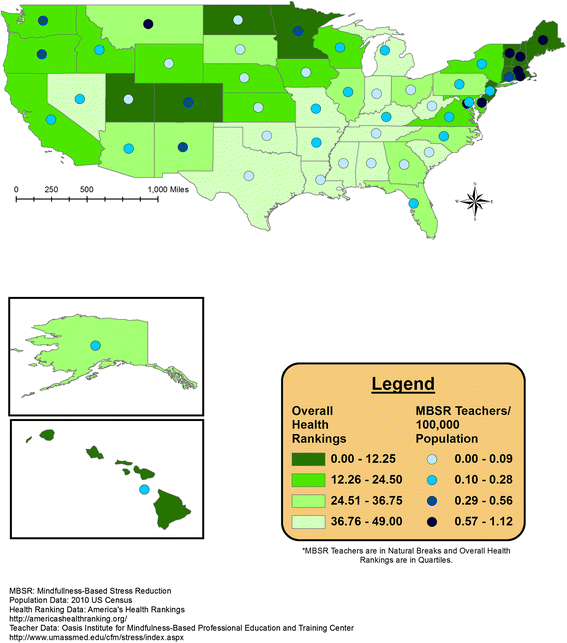Mindfulness-based stress reduction teachers, practice characteristics, cancer incidence, and health: a nationwide ecological description
- PMID: 25887555
- PMCID: PMC4342874
- DOI: 10.1186/s12906-015-0545-3
Mindfulness-based stress reduction teachers, practice characteristics, cancer incidence, and health: a nationwide ecological description
Abstract
Background: Studies have demonstrated the potential of the Mindfulness-Based Stress Reduction (MBSR) program to improve the condition of individuals with health outcomes such as hypertension, diabetes, and chronic pain; improve psychological well-being; reduce stress levels; and increase survival among cancer patients. To date, only one study has focused on the effect of long-term meditation on stress, showing a positive protective relationship. However, the relationship between meditation and cancer incidence remains unexplored. The objective of this study was to describe the state-level relationship between MBSR instructors and their practices and county-level health outcomes, including cancer incidence, in the United States.
Methods: This ecologic study was performed using geospatial mapping and descriptive epidemiology of statewide MBSR characteristics and overall health, mental health state rankings, and age-adjusted cancer incidence rates.
Results: Weak to moderate state-level correlations between meditation characteristics and colorectal and cervical cancer incidence were detected, with states with more meditation (e.g., more MBSR teachers per population) correlated with a decreased cancer incidence. A negative correlation was detected between lung & bronchus cancer and years teaching MBSR only. Moderate positive correlations were detected between Hodgkin's Lymphoma and female breast cancer in relation to all meditation characteristics. Statistically significant correlations with moderate coefficients were detected for overall health ranks and all meditation characteristics, most strongly for total number of years teaching MBSR and total number of years of general meditation practice.
Conclusions: Our analyses might suggest that a relationship exists between the total number of MBSR teachers per state and the total number of years of general meditation practice per state, and colorectal and cervical cancer incidence. Positive correlations were observed with overall health rankings. Despite this study's limitations, its findings could serve to generate hypotheses and to inform and motivate a new focus on meditation and stress reduction in relation to cancer incidence, with specific relevance to colorectal and cervical cancer.
Figures





References
-
- American Psychological Association (APA). (2013). Stress in America: Missing the Health Care Connection. Retrieved from: https://www.apa.org/news/press/releases/stress/2012/full-report.pdf.
-
- Lovallo WR. Stress & health: biological and psychological interactions. 2. Thousand Oaks, California: Sage Publications; 2005.
-
- Hebert JR, Hurley TG, Harmon BE, Heiney S, Hebert CJ, Steck SE. A diet, physical activity, and stress reduction intervention in men with rising prostate-specific antigen after treatment for prostate cancer. Cancer Epidemiol. 2012;36(2):e128–136. doi: 10.1016/j.canep.2011.09.008. - DOI - PMC - PubMed
Publication types
MeSH terms
Grants and funding
LinkOut - more resources
Full Text Sources
Other Literature Sources
Medical

